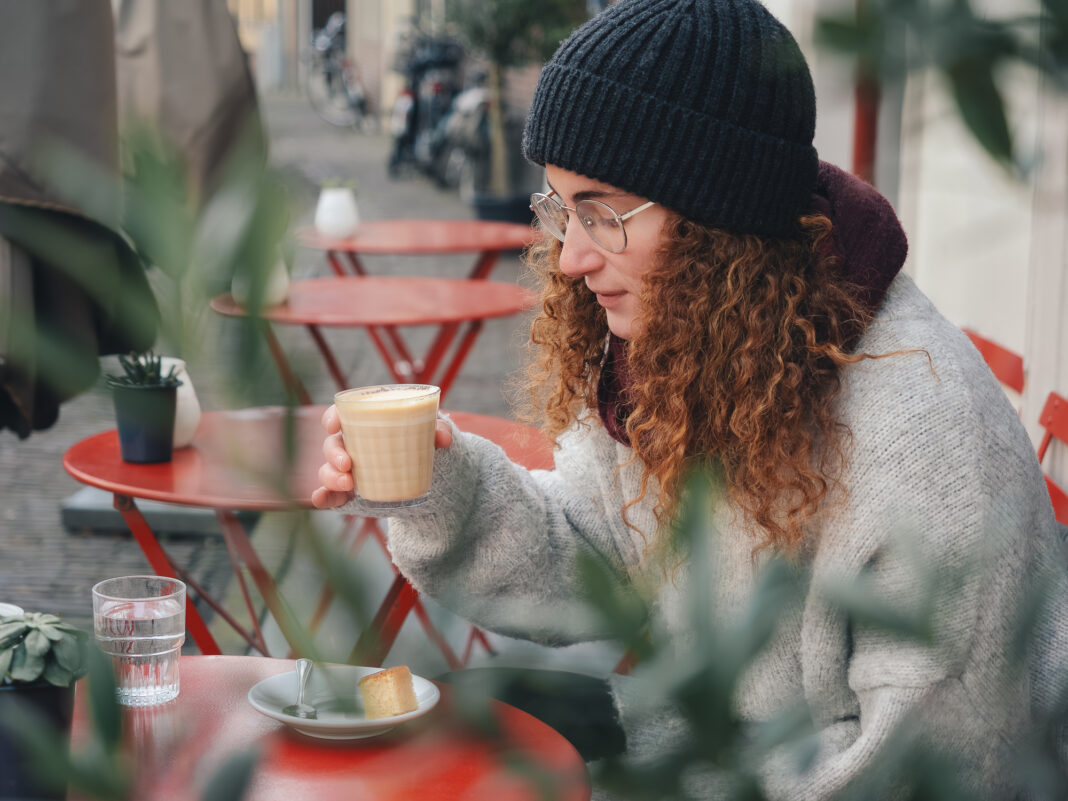Any long-term resident of Amsterdam will tell you that the city has changed. But how? One Amsterdammer has put it perfectly: it’s becoming a playground for the “oat milk elite.”
In fact, he’s written a whole book about the phenomenon.
Amsterdammer, Jonas Kooyman, author of De havermelkelite (the oat milk elite), has witnessed a worrying change across the capital city.
Speaking with RTL Nieuws, he says, “All character is disappearing from the city.” Instead, one specific monoculture is beginning to take hold: that of the “oat milk elite.”
Who are the oat milk elite?
How can you identify this group of people? Kooymans offers some indicative features in his book:
- They live in the Randstad
- They are in their 20’s or 30’s
- They live in a formerly working-class neighbourhood
- They vote progressive left
- They do yoga, pilates, or make use of a class app
- They have an academic background
- They order oat milk cappuccinos
- They are in an open relationship or use the Feeld app
- They ride around on an e-bike
- They visit restaurants because they saw them on TikTok or Instagram
Feeling seen? We hate to break it to you, but you’re part of Kooyman’s “oat milk elite.”
Speaking with RTL Nieuws, Kooyman offers some examples of the effects this culture has on Amsterdam’s neighbourhoods.
“Everything and everyone is starting to look the same. You see the same stainless steel tables everywhere, the same Spotify playlist seems to be playing in every coffee bar and everyone is wearing Adidas Sambas or Birkenstock Bostons.” — Recognise this? 👀
READ MORE | What your favourite Dutch FEBO snack says about you
“The city is turning into a monocultural playground for the wealthy middle-class,” he says.
Now, before you diss Kooyman for perfectly summarising your lifestyle, consider what he has to say about why he’s not a lover of the “oat milk elite”.
“If you scratch beneath the shiny layer, it is a culture that you can only participate in if you have money and the right cultural capital, or in other words, understand the cultural codes.”
Ok, I’m guilty, what can I do to not be part of the problem
As all internationals in the Netherlands know, cultural exclusion is very real. So what can we do when we’re part of the group of people doing the excluding?
Kooyman has a few suggestions:
“Try to stay connected to the city by not only going to restaurants that are owned by a chain. Don’t let your taste be determined by the algorithms of TikTok and Instagram, but look further,” he tells RTL Nieuws.
READ MORE | 33 best things to do in Amsterdam in 2024 [UPDATED]
“Visit a cultural event, go to that brown café, just cook for friends at home, instead of visiting yet another trendy restaurant with rickety stools. And dare to admit that you also find all the things you buy ridiculously expensive.”
What do you think of Kooyman’s insights? Tell us your thoughts in the comments below.



